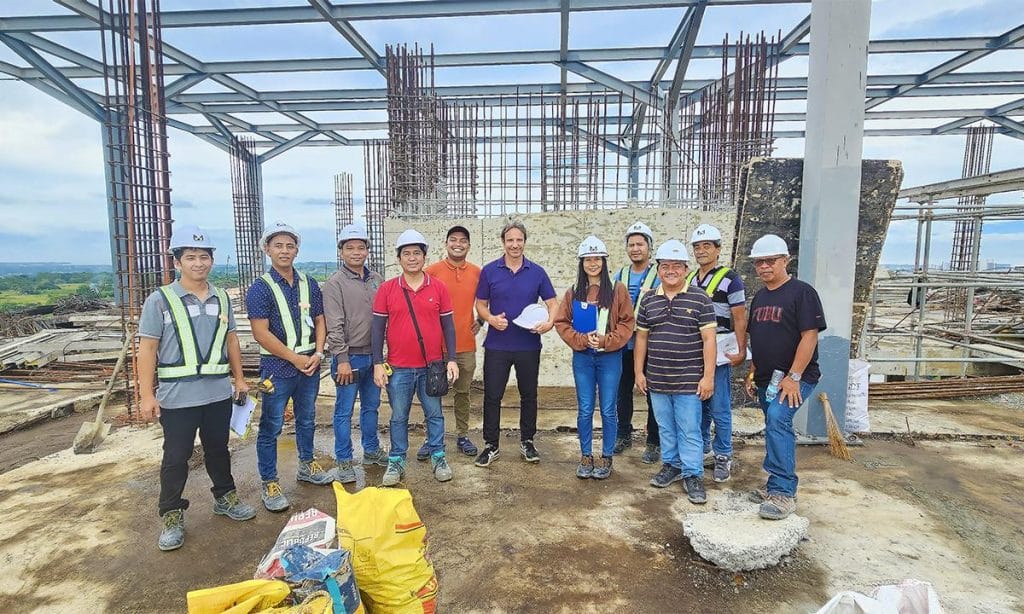We just observed the “Araw ng mga Mangagawa” (Labor Day) last May 1 in honor of the country’s labor force.
For Italpinas Development Corporation (IDC), the recent Labor Day commemoration has become doubly meaningful as we are celebrating the company’s 15th anniversary this year. So, in this column, I would like to pay tribute to the people who are working quietly in the background as they play a pivotal role in the success of our business.
In the grand arena of real estate development, where architects, investors, and designers take center stage, there exists a group of unsung heroes—our construction workers. They toil away with their sweat, arduous work, and determination that make every designer’s vision come to life. These people, who rarely grace award ceremonies or are given the spotlights—are the backbone of our every building project.
At IDC, we see them as the “silent supporters” that give form to our designs one brick at a time. Their dedication and expertise echo through the company’s eco-friendly structures, which rise not only as monuments of sustainability but also as testaments to their craftsmanship and perseverance.

In my interactions with them, I found out that many of the workers are from the countryside who went to work in the big cities to provide for their families back home. Beyond their immeasurable contribution to the real estate business, I recognize that, out of necessity, these workers are willing to sacrifice aspects of their personal lives—all for the sake of their loved ones. They demonstrate a willingness to take risks and frequently encounter occupational hazards and varying environmental conditions, regardless of weather.
This underscores why the government, real estate developers, and industry professionals should acknowledge their vital role. Ensuring that all workers are treated fairly, paid in accordance with the law, and have their rights recognized is essential—one of the best ways to honor their dedication.
Recently, President Marcos has ordered a review of the daily minimum wage rates nationwide. It currently stands at P610.00 in the National Capital Region (NCR) for workers in the non-agriculture sector. The move hopes to establish a regular and predictable schedule of wage reviews, which could benefit both workers and businesses by reducing uncertainty and promoting fairness.
Understanding the intricate balance between economic growth and social equity, I appreciate the government’s initiative to reassess wage structures in the light of inflation and the current economic climate. Supporting the review of the minimum wage rates is our way of recognizing the contribution of our workers to the success of their businesses as well as the labor force’s contribution to nation-building.
Simultaneously, there has been a proposal in the Senate for a P100-peso legislated daily minimum wage increase for workers in the private sector through Senate Bill No. 2534. Already approved on Third and Final Reading, it is now awaiting the version of the House of Representatives so both measures can be tackled at the Bicameral Conference Committee level.
The review ordered by President Marcos is a forward-looking measure that could lead to more systematic and equitable wage adjustments while the Senate’s push for a legislated increase underscores the immediate need for action. A wage hike adjustment- whether through legislation or the Wage Boards, is a welcome development that would ensure the well-being of the workforce.
The role of the workers in the real estate industry will even be more significant in the years to come as the construction industry in the Philippines is projected to register an annual average growth rate of 7.1% between 2025 and 2028, according to Research & Markets.
On the other hand, the UK-based Oxford Economics and Aon Global Construction and Infrastructure foresees the country to be among the fastest-growing construction markets over the next 15 years globally. In a report, the think tank group said the Philippines is expected to lead the other ASEAN market economies with an average annual construction growth rate of over six percent, which is similar to the projection made by Research & Markets. Factors for this unprecedented development, the report said, include a growing working-age population, favorable investment climate, and government focus on infrastructure projects.
As we look forward to exciting months and years ahead, let us make sure that no one in our sector is left behind. At Italpinas, we are committed to providing more opportunities and recognition for our workforce as the company continues to grow.
In our 15th year, IDC continues to advance green architecture in the Philippines, we reaffirm our pledge to uphold the dignity of labor and foster an environment where every worker can thrive.
* * *
I would like to invite you to Like, Follow, and Share my online spaces and content on Facebook and LinkedIn (Architect Romolo V. Nati), and on Twitter (@romolonati).
